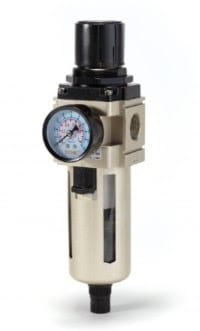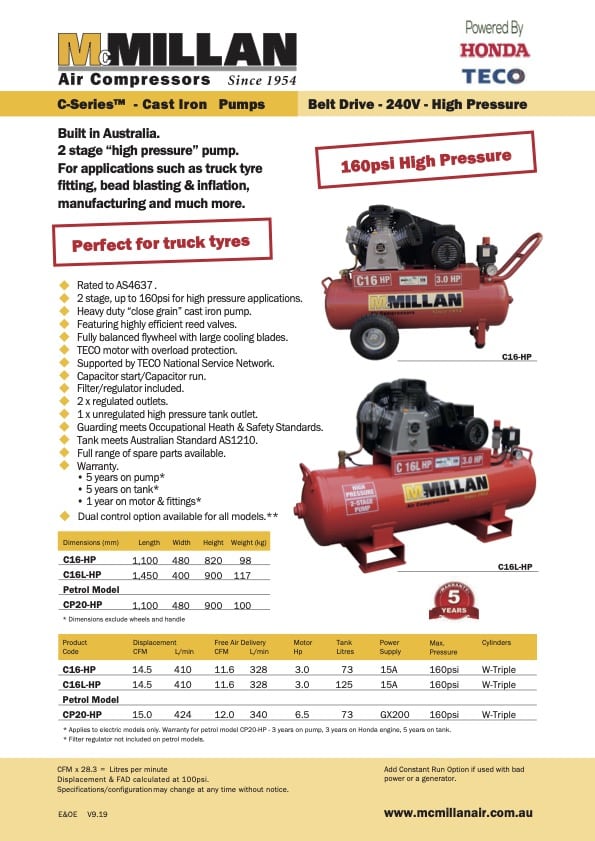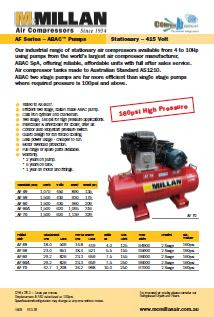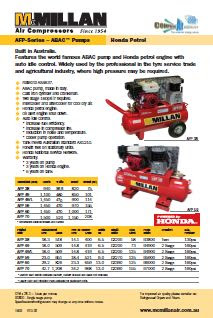So what is the difference, and when would high pressure be required? What is a ‘Two Stage’ compressor’ ? These are questions our customers commonly ask, so here’s the gist:
Relating to pressure there are 2 types of piston compressor pumps – single stage and multi stage. Standard pressure of around 120psi can be achieved with single stage compression, whereas higher pressures require 2-stage compression to achieve around 160psi efficiently. In our market, large truck tyre inflation is the main application which needs high pressure, 2-stage compressors.
Single Stage for Standard Pressure
Operating in a range of 90-120psi (cut-in/cut-out). Suitable for most air tools, spray painting, actuators, valves etc. provided appropriate flow rate is selected.
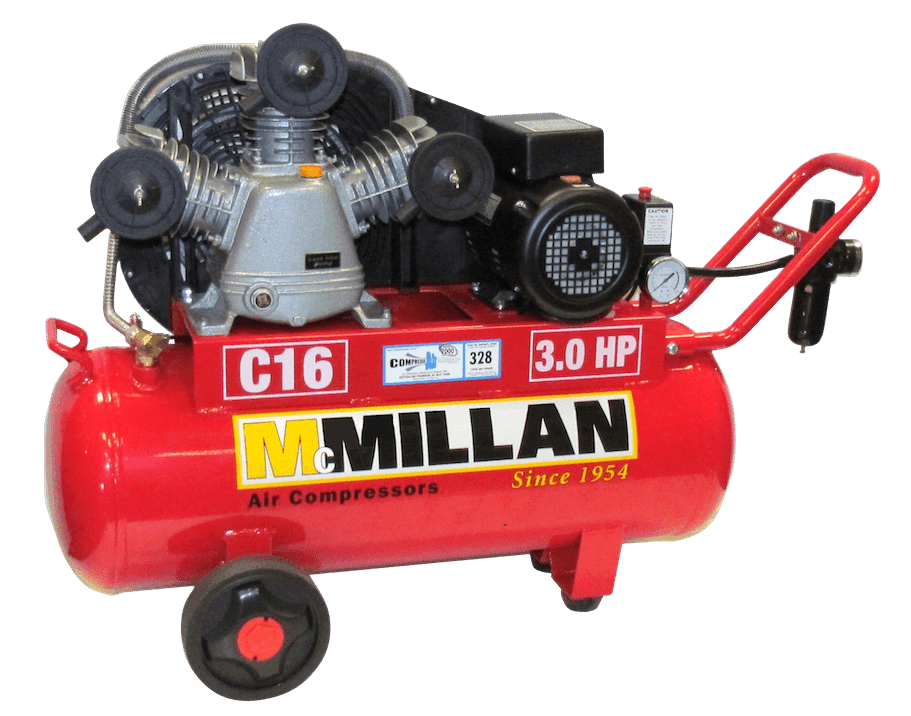
Two Stage for High Pressure
Operating in a range of 130-160psi (cut-in/cut-out). Suitable for large truck tyres, and applications that require minimum pressure in excess of 120psi. Also suitable for all standard pressure applications, provided appropriate flow rate is selected.
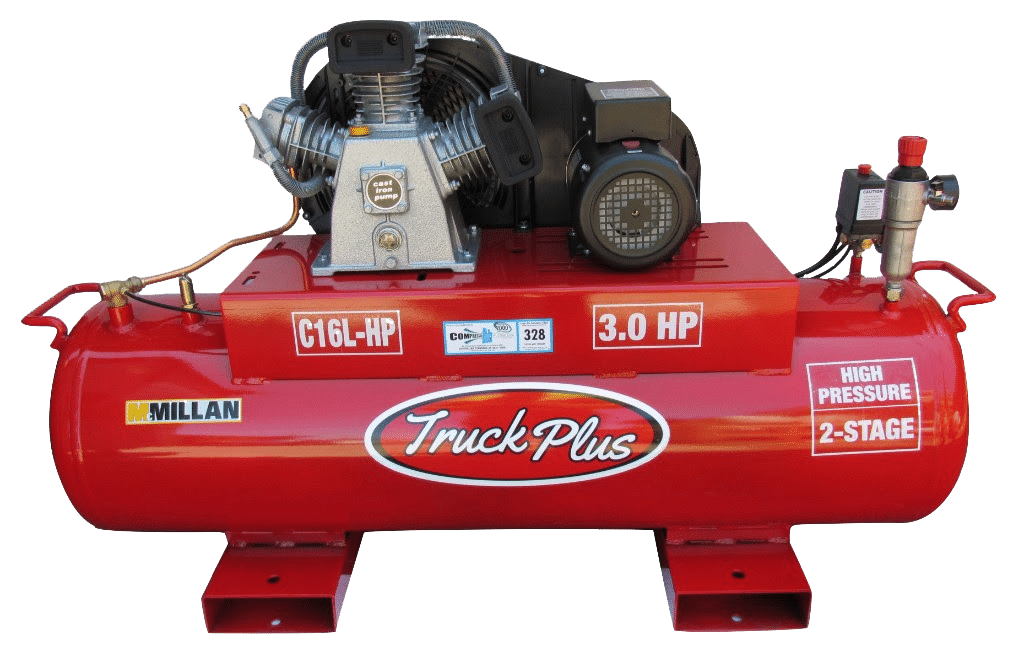
How to identify a two stage pump.
Notice on this 3-cylinder Truck Plus pump the high pressure cylinder has no inlet filter and has an inter-stage safety valve ‘upstream’ of the high pressure cylinder.
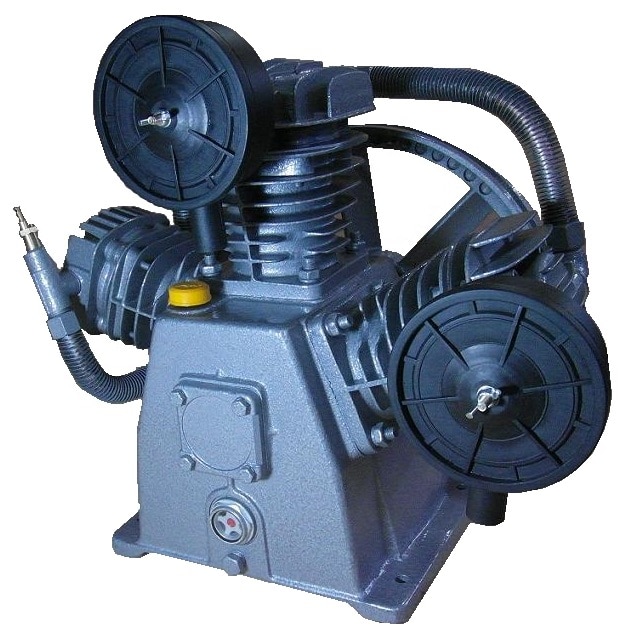
The upright style pumps may also be either single or two stage. See the piped inter-cooler with the inter-stage safety valve ‘upstream’ of the high pressure cylinder on this two-stage ABAC pump.
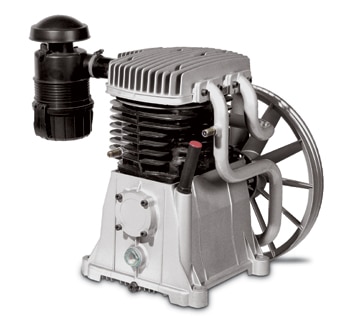
The Inter-stage Safety Valve
Also known as the inter-cooler safety valve, this is more of a ‘tell-tale’ than a safety device. It is set to blow off at 4.5bar / 65psi as an indication that the the pump is ‘single staging’. This means the low pressure piston is working to a higher pressure than intended – due to a blown head gasket or HP valve failure. So when this valve blows it does not need to be replaced, the valve gasket or valve parts need attention.

Understanding the difference.
Single Stage
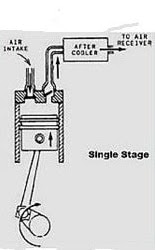
Two-stage
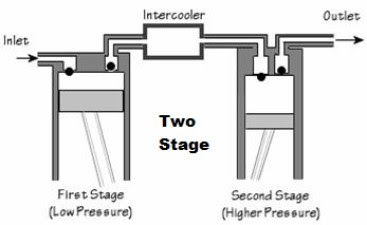
Tyre pumping on large trucks
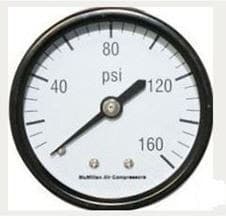
Two-stage compressors can be used for regular applications. Air pressure regulators (which reduce the pressure of compressed air from the tank to the lower pressure required for the air tools being used) are fitted to all McMillan 240V compressors. However, trying to adjust your single stage compressor to achieve higher pressure is both dangerous and harmful to the compressor, so don’t do it!
